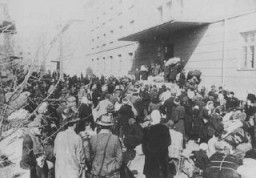You searched for: 买球平台,买球网站,买球官网,世界杯买球网址,【世界杯买球官网∶22kk55.com】网上买球规则,网上买球技巧,网上买球地址,2022世界杯怎么买球,如何买球,【赌球平台推荐∶22kk55.com】网址ZCCDBADDgBkn0CEg
<< Previous | Displaying results 61-70 of 248 for "买球平台,买球网站,买球官网,世界杯买球网址,【世界杯买球官网∶22kk55.com】网上买球规则,网上买球技巧,网上买球地址,2022世界杯怎么买球,如何买球,【赌球平台推荐∶22kk55.com】网址ZCCDBADDgBkn0CEg" | Next >>
-
Opening day of the United States Holocaust Memorial Museum
PhotoPresident Bill Clinton (center), Elie Wiesel (right), and Harvey Meyerhoff (left) light the eternal flame outside on the Eisenhower Plaza during the dedication ceremony of the United States Holocaust Memorial Museum. April 22, 1993.
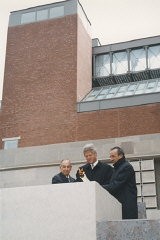
-
Germans guard Soviet prisoners of war
PhotoGermans guard prisoners in the Rovno camp for Soviet prisoners of war. Rovno, Poland, after June 22, 1941. Second only to the Jews, Soviet prisoners of war were the largest group of victims of Nazi racial policy.
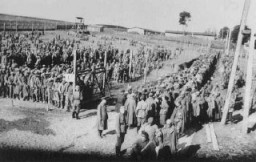
-
The White Rose Opposition Movement
ArticleThe White Rose, led by students including Hans and Sophie Scholl, was an anti-Nazi group during WWII. Its members spread leaflets denouncing the regime.
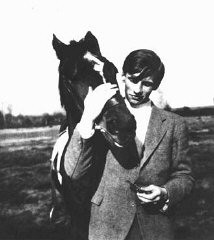
-
The Rhine Crossings in World War II
ArticleCrossing the Rhine River allowed US and British troops to advance into the interior of Germany, helping to bring about the defeat of the Third Reich in WWII
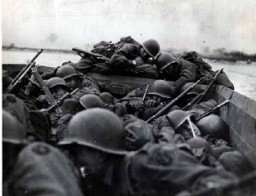
-
Jack London
ArticleJack London was an American author who wrote “The Call of the Wild.” His socialist leaning works were burned during the Nazi book burnings of 1933. Learn more.
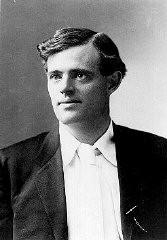
-
Gisha Galina Bursztyn: Maps
Media EssayBorn to Jewish parents in Poland, Gisha Galina Bursztyn moved to the city of Warsaw after she married. On September 1, 1939, Germany invaded Poland. Warsaw fell four weeks later, and a ghetto was set up in November 1940. During a massive roundup i...
-
Receipt for items confiscated from Moshe Zupnik
DocumentSoviet authorities issued this receipt, in Russian, to Moshe Zupnik for the rubles they confiscated from him before he left the Soviet Union. Soviet authorities routinely confiscated most rubles and other valuables from Jewish refugees before they boarded steamers bound for Japan and left the Soviet Union. Vladivostok, Soviet Union, January 22, 1941. [From the USHMM special exhibition Flight and Rescue.]
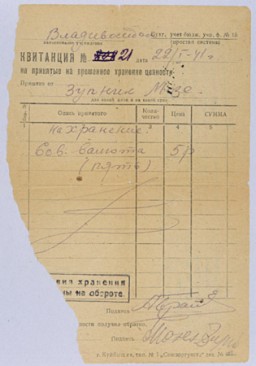
-
Pogrom in Lvov
FilmThe Soviet Union occupied Lvov in September 1939, according to secret provisions of the German-Soviet Pact. Germany invaded the Soviet Union on June 22, 1941, occupying Lvov within a week. The Germans claimed that the city's Jewish population had supported the Soviets. Ukrainian mobs went on a rampage against Jews. They stripped and beat Jewish women and men in the streets of Lvov. Ukrainian partisans supported by German authorities killed about 4,000 Jews in Lvov during this pogrom. US forces discovered…
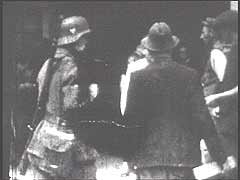
-
A family of Macedonian Jews before deportation
PhotoA family of Macedonian Jews in the Tobacco Monopoly transit camp in Skopje before deportation. Skopje, Yugoslavia, March 1943. The Jews of Bulgarian-occupied Thrace and Macedonia were deported in March 1943. On March 11, 1943, over 7,000 Macedonian Jews from Skopje, Bitola, and Stip were rounded up and assembled at the Tobacco Monopoly in Skopje, whose several buildings had been hastily converted into a transit camp. The Macedonian Jews were kept there between eleven and eighteen days,…
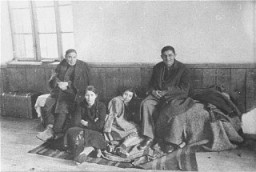
-
Deportation of Jews from Skopje
PhotoDeportation of Jews from Skopje, Yugoslavia, March 1943. The Jews of Bulgarian-occupied Thrace and Macedonia were deported in March 1943. On March 11, 1943, over 7,000 Macedonian Jews from Skopje, Bitola, and Stip were rounded up and assembled at the Tobacco Monopoly in Skopje, whose several buildings had been hastily converted into a transit camp. The Macedonian Jews were kept there between eleven and eighteen days, before being deported by train in three transports between March 22 and 29, to Treblinka.
